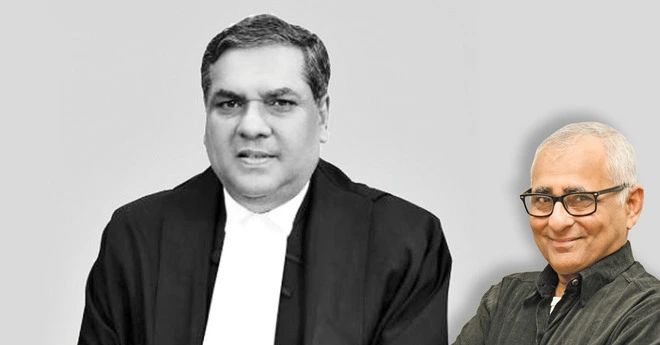By Inderjit Badhwar
In a historic and progressive ruling, the Supreme Court of India under Chief Justice Sanjiv Khanna has taken a decisive step to halt the dangerous tide of communal animosity that has marred India’s social fabric for decades. By freezing ongoing petitions, litigation, and surveys aimed at determining whether Muslim places of worship were built atop demolished Hindu temples, Justice Khanna has reaffirmed the constitutional ethos of secularism and religious tolerance in a nation struggling with the weight of its historical grievances.
This ruling serves as a crucial intervention against the politicization of faith and the use of ancient wrongs as a tool for modern-day divisiveness. Over the years, India has witnessed a troubling trend of litigants and political entities weaponizing historical disputes over places of worship to inflame communal passions. The most catastrophic example of this was the demolition of the Babri Masjid in 1992, an act that not only triggered nationwide violence, but also set the stage for the rise of Hindutva revivalism and the political ascendancy of the Bharatiya Janata Party (BJP).
The repercussions of the Babri Masjid’s destruction continue to haunt the nation. It catalyzed an era of polarized politics, blurred the lines between religion and State, and emboldened attempts to reinterpret history through the lens of communal antagonism. In response to this divisive milieu, the Places of Worship (Special Provisions) Act of 1991 was enacted, mandating that the religious character of all places of worship as of August 15, 1947, must be maintained without alteration (with the exception of Babri Masjid). This law was a beacon of hope, a legislative attempt to shield India’s secular foundation from the storms of religious hatred.
Yet, the law’s protective intent was undermined by courts that entertained petitions and sanctioned archaeological surveys, ostensibly to uncover evidence of religious structures beneath existing mosques. Such judicial permissiveness emboldened those seeking to fan the flames of communal discord. A recent and chilling example was the violent aftermath of the Sambhal killings, a grim reminder of how disputes over places of worship continue to be exploited to pit communities against one another.
Justice Khanna’s ruling decisively breaks with this troubling judicial precedent. By putting a halt to all such petitions and surveys, both ongoing and planned, the chief justice has sent an unequivocal message: India cannot afford to be held hostage to the ghosts of its past. His order recognizes that “avenging” perceived historical wrongs—no matter how deeply they resonate in certain sections of society—is antithetical to the principles of modernity, democracy, and pluralism.
This decision is a much-needed reminder that courts must be the guardians of constitutional values, not platforms for religious or political brinkmanship. In a secular democracy, the judiciary bears the responsibility of ensuring that justice is rooted in reason and equity, not in the excavation of centuries-old grievances. Chief Justice Khanna has wisely recognized that such disputes only serve to divert attention from pressing national issues—poverty, inequality, and development—towards fruitless and destructive conflicts over history.
Critics of the ruling may argue that it stifles legitimate historical inquiry or denies justice to communities that feel aggrieved by past events. However, Justice Khanna’s order does not preclude historical scholarship or dialogue. What it does is draw a clear boundary: courts are not battlegrounds for settling historical scores. The pursuit of justice must be forward-looking, aimed at reconciliation and progress, rather than retribution for events long buried by time.
In a nation as diverse as India, the importance of maintaining communal harmony cannot be overstated. Religious tolerance is not merely a lofty ideal; it is the bedrock of India’s unity. Justice Khanna’s ruling reaffirms that the State’s primary duty is to protect this unity by upholding secularism in both spirit and practice. The decision also underscores the importance of respecting legislative intent, particularly when it seeks to foster peace and stability.
Justice Khanna’s leadership in this matter offers a powerful counter-narrative to those who seek to weaponize religion for political gain. His ruling reminds us that India’s greatness lies in its ability to embrace its plurality, to rise above the divisions of caste, creed, and faith, and to move forward as one nation. By prioritizing harmony over hostility, Justice Khanna has taken an important step towards safeguarding the constitutional promise of equality and justice for all.
The Supreme Court’s order is not merely a legal milestone; it is a moral imperative. At a time when the embers of communal hatred threaten to ignite once more, Justice Khanna’s stand provides a beacon of hope. It is now up to the government, political leaders, and civil society to build on this foundation, ensuring that the fires of intolerance are doused for good.
India’s journey as a secular democracy is fraught with challenges, but rulings like this remind us that the judiciary can play a transformative role in steering the nation towards its higher ideals. Chief Justice Khanna’s courage and clarity deserve not just praise but also emulation, for they embody the essence of what it means to be a just and inclusive society.
Politicians with vested interests will obviously oppose the CJI’s initiative. But it remains to be seen whether the judiciary— including his colleagues on the Supreme. Court— will give his ruling their unrelenting support, given his short tenure.


